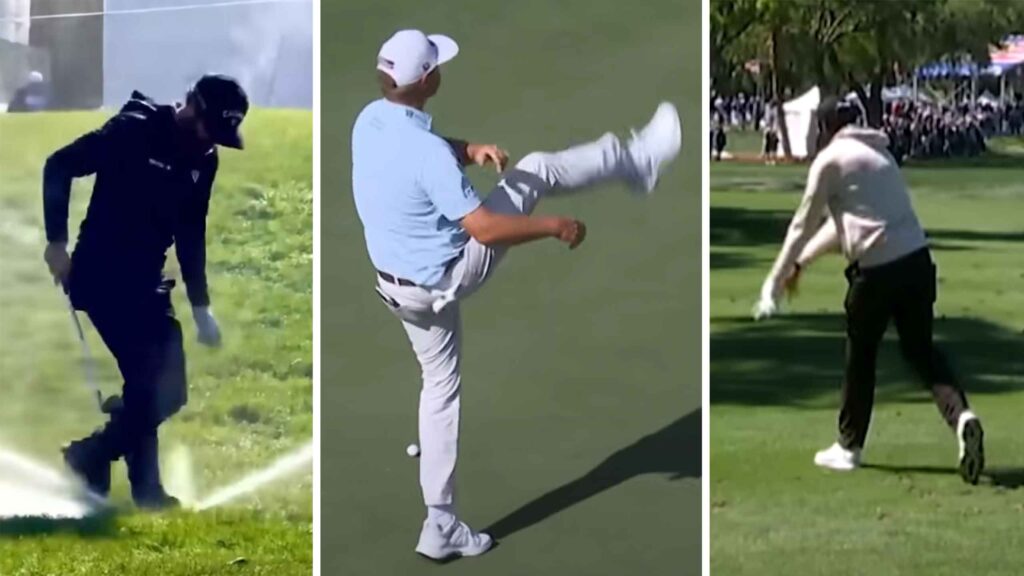Adam Hadwin, Patton Kizzire, and Sahith Theegala all recently displayed golfing rage at the Valspar Championship at Innisbrook Resort. The viral clips showed Kizzire punting his putter, Hadwin slamming a wedge, and Theegala flinging his iron. All three players stated that they have been or expect to be fined by the PGA Tour for their actions and expressed varying degrees of remorse. Kizzire acknowledged that he crossed the line, while Theegala admitted there should be consequences for such behavior but also noted the frustration that comes with the game of golf.
For many golfers, it doesn’t take much to trigger frustration on the course. Whether it’s a poorly executed shot or a missed putt, emotions can easily surface during a round of golf. Kizzire, in particular, mentioned that while he is aware of the consequences of his actions, similar outbursts are relatable to amateur golfers. Rory McIlroy, who has also struggled with controlling his emotions on the course, emphasized the importance of setting a positive example, especially for younger players.
Among the displays of emotion at the Valspar Championship, Hadwin’s outburst was perhaps the most memorable. After hitting a sprinkler head with his club, causing water to gush out, Hadwin expressed embarrassment and a need to gain control over his emotions on the course. Even his wife, Jessica, humorously commented on the incident on social media. Hadwin acknowledged the need to control his emotions moving forward to avoid any further embarrassing moments for himself and his family.
While outbursts of frustration are common in golf, especially under pressure, players understand the importance of setting a good example for fans and younger generations. Despite the challenges of the game and the emotional toll it can take, maintaining composure and professionalism on the course is crucial. Moving forward, players like Hadwin, Kizzire, and Theegala are focused on controlling their emotions to avoid fines and negative publicity.
Professional golfers often face intense pressure and scrutiny, leading to moments of frustration and emotional outbursts on the course. While these incidents can be relatable to amateur players, professionals understand the impact of their actions on the sport’s image and future. By acknowledging their mistakes and working on emotional control, golfers like Hadwin, Kizzire, and Theegala aim to set a positive example for fans and aspiring young golfers.
As the Texas Children’s Houston Open approaches, players are focused on maintaining their composure and professionalism on the course. Learning from past mistakes and recognizing the need for emotional control, golfers strive to avoid fines and negative attention. While golf is a game of skill and strategy, handling the mental aspect of competition is equally important for success at the highest level. By staying focused and disciplined, players can overcome challenges and achieve their goals in the sport they love.


